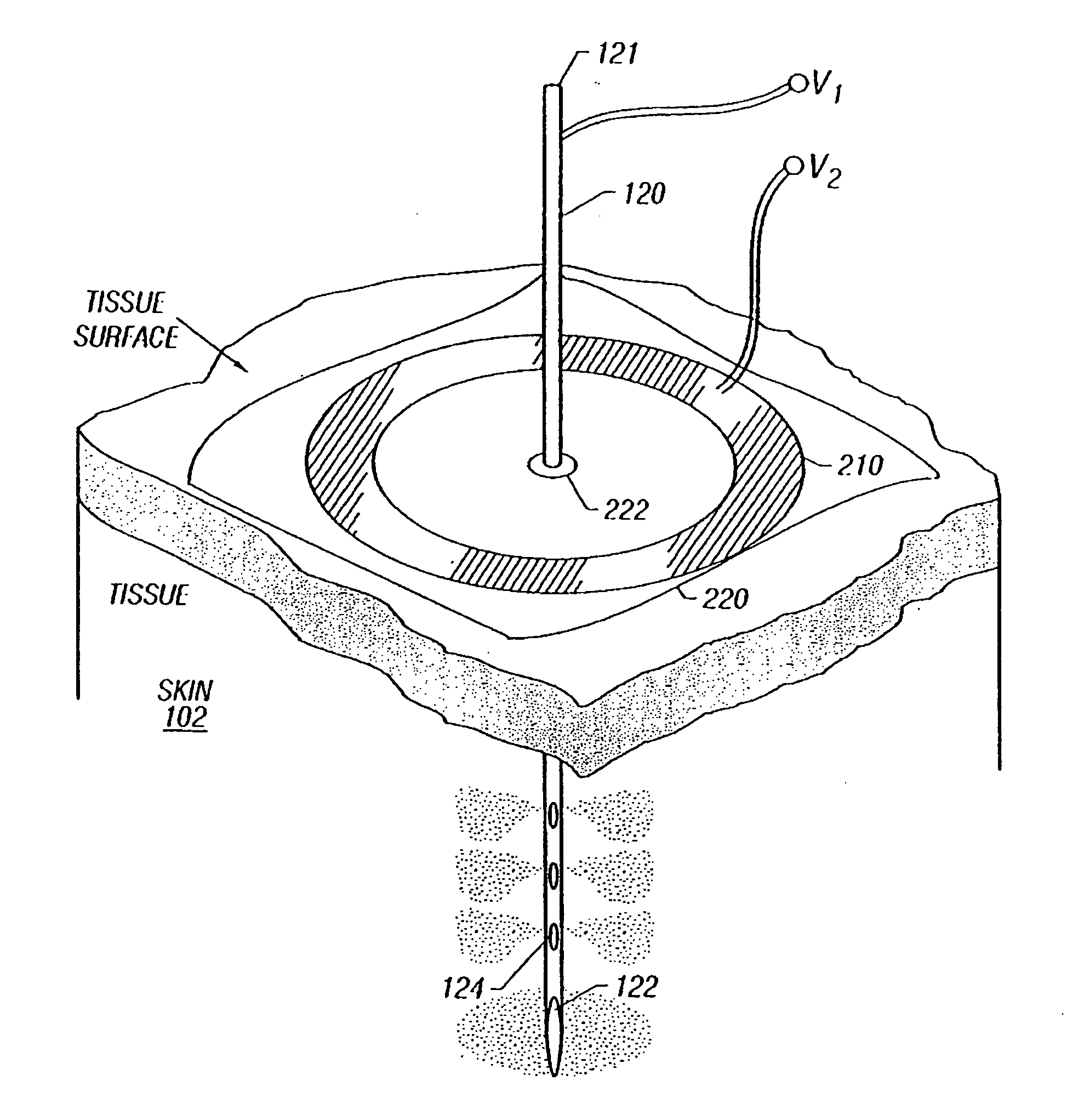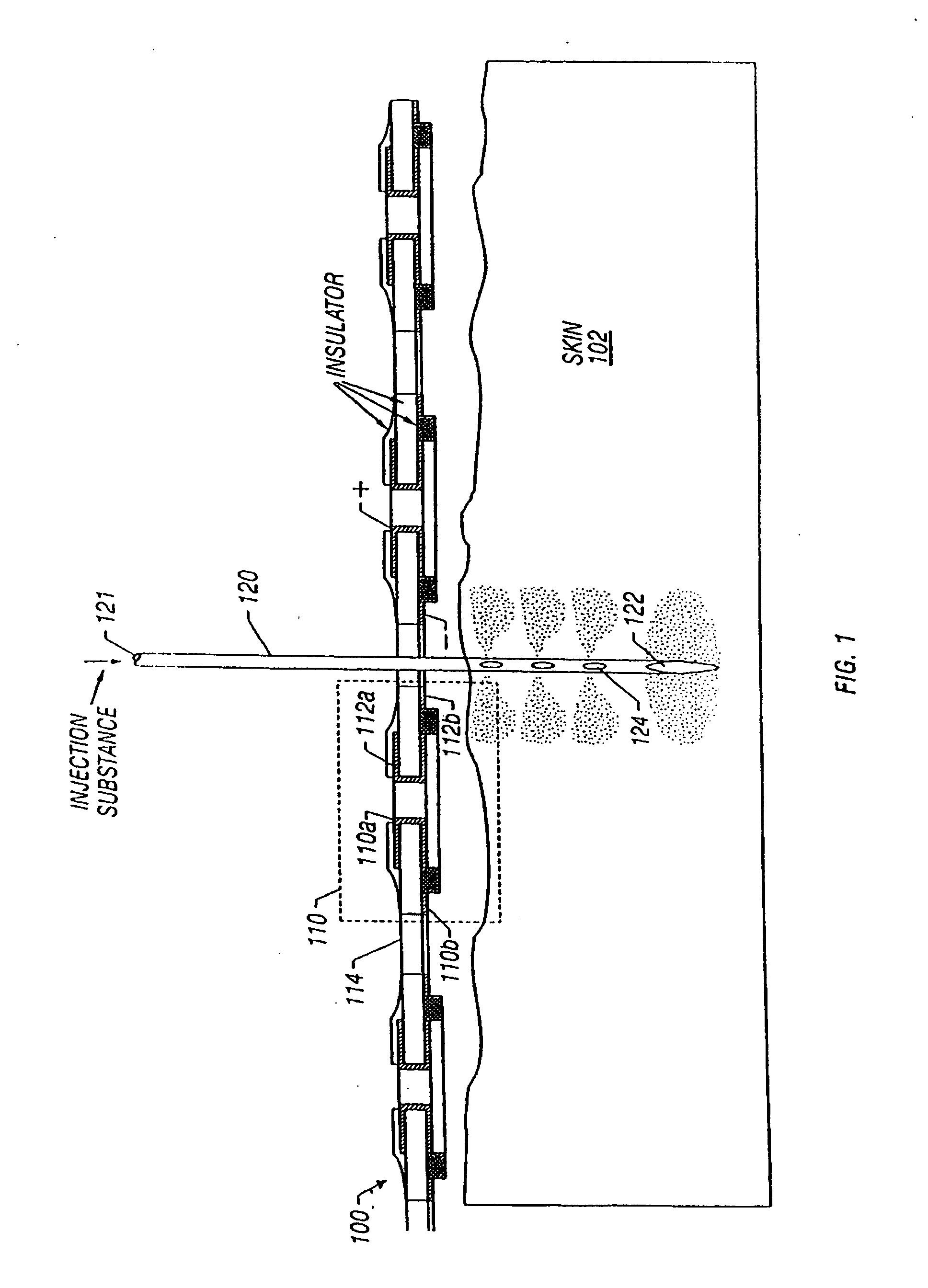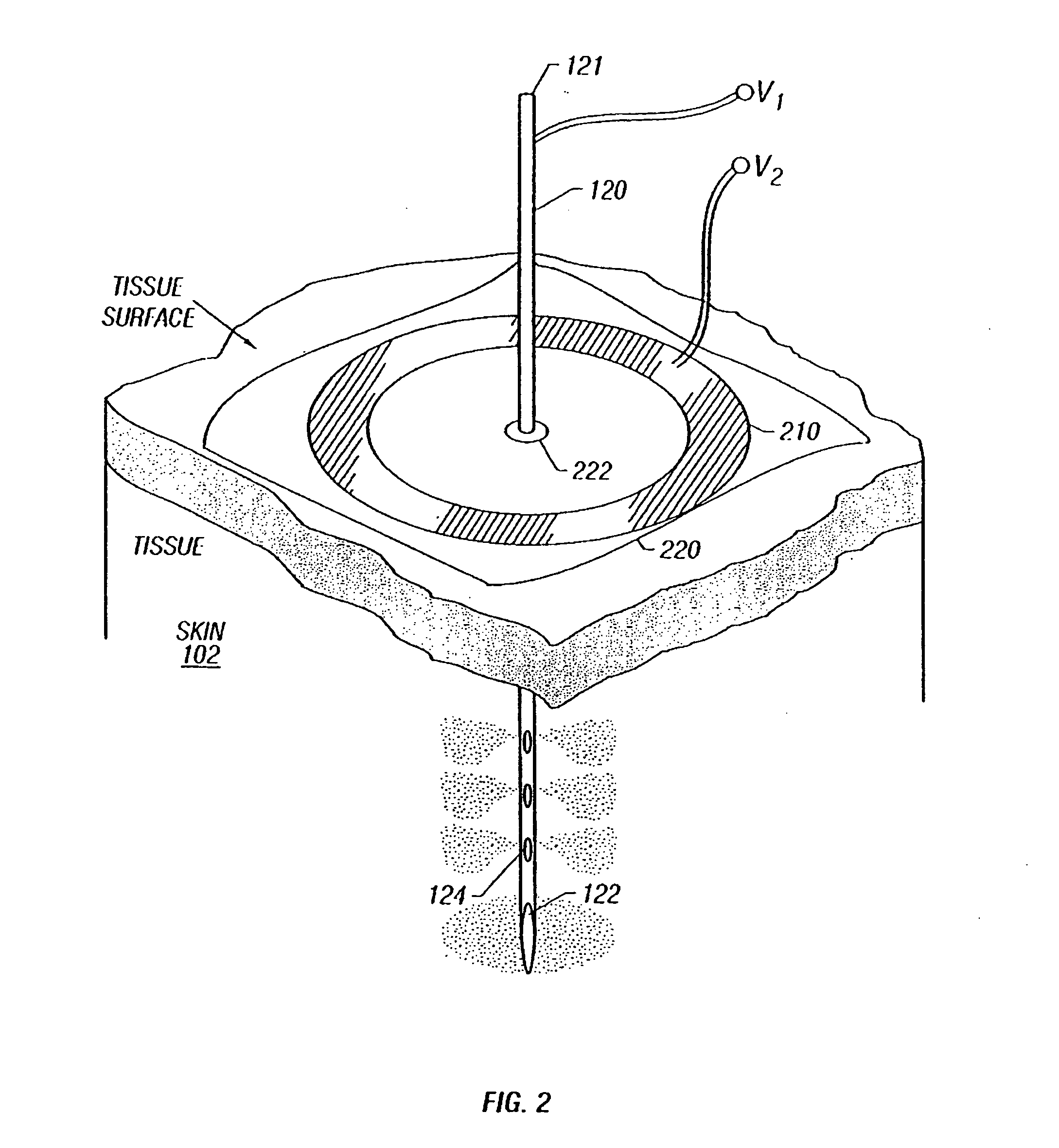Enhanced delivery of naked DNA to skin by non-invasive in vivo electroporation
a technology of in vivo electroporation and naked dna, which is applied in the field of electric pulses, can solve the problems of ineffective penetration of certain cancer cells, large technical problem of in vivo method of gene delivery, and persisting formulation of bleomycin, so as to enhance the expression of therapeutic polypeptides.
- Summary
- Abstract
- Description
- Claims
- Application Information
AI Technical Summary
Benefits of technology
Problems solved by technology
Method used
Image
Examples
example 1
Electroporation of lacZ DNA
[0160] LacZ DNA (40 μg DNA in 20 μl Tris-EDTA), wherein the lacZ gene is under control of the CMV promoter, was topically applied to the skin of six to seven-week-old SKIII hairless mice (female) (Charles River Laboratories. Wilmington, Mass.). A caliper electrode (FIG. 10A) was then placed on both sides of a skin-fold at the dorsal region of the mouse and electrical pulses were delivered. Unpulsed mice were used as pressure-only and blank controls. The skin was harvested for X-gal staining 3 days after application of the lacZ DNA.
[0161] Pulse application and electrical measurements: Three exponential decay pulses of amplitude 120 V and pulse length of 10 ms or 20 ms were administered from a BTX ECM 600 pulse Generator within about 1 minute. Pressure was maintained with the caliper for up to 10 min. following pulsing. A caliper-type electrode (1 cm2 each electrode) was applied on a mouse skin-fold of about 1 mm in thickness. Resistance of the skin was me...
example 2
Electroporation of GFP
[0164] In vivo skin-targeted GFP gene delivery (FIG. 15): A procedure similar to that used in Example 1 was used for investigation the effectiveness of GFP expression in skin. Hairless mice were anesthetized with isoflurane inhalation and their dorsal hindquarter skin was swabbed with alcohol and air-dried. Fifty micrograms of a plasmid containing GFP and associated regulatory sequences (CMV promoter) was either applied topically or directly injected into the skin followed by electroporation with the caliper electrode or meander electrode. The animals were sacrificed three days later and skin of the treated area was excised and frozen. Frozen cross sections (12 μm) were immediately prepared. Viewing under a microscope with con focal fluorescent optics and FITC filtration, indicated GFP expression in the epidermal and dermal layers of the relatively thin murine skin (FIG. 15). The results of several different treatment regimens are depicted in FIG. 15. Panels 1...
example 3
In Vitro Electroporation of Human Glioblastoma Cell Line SF-295
[0165] To evaluate and track the delivery of plasmid DNA to target cells, a fluorescently labeled vector using TOTO-1 (Molecular Probes, Inc.) was developed. The TOTO-1 molecule is attached to the green fluorescent protein (GFP)-expressing vector pEGFP-C1 (Clonetech). Both the plasmid, and the plasmid product (GFP) fluoresce under the same FITC excitation and filtration, and are thus both observable simultaneously under a microscope with confocal fluorescent optics and FITC filtration. (FIG. 16). 30 μg of unlabeled and 10 ug of TOTO-1 labeled plasmid was electroporated into the SF-295 cells and 24 hours later GFP expression was assessed through an inverted fluorescent microscope. In FIG. 16A, (100× magnification, fluorescent light only) GFP expressing cells are visible as well as small green fluorescent dots that indicate TOTO-1 labeled plasmid within cells that are not expressing the plasmid. In FIG. 16B, (460× magnifi...
PUM
 Login to View More
Login to View More Abstract
Description
Claims
Application Information
 Login to View More
Login to View More - R&D
- Intellectual Property
- Life Sciences
- Materials
- Tech Scout
- Unparalleled Data Quality
- Higher Quality Content
- 60% Fewer Hallucinations
Browse by: Latest US Patents, China's latest patents, Technical Efficacy Thesaurus, Application Domain, Technology Topic, Popular Technical Reports.
© 2025 PatSnap. All rights reserved.Legal|Privacy policy|Modern Slavery Act Transparency Statement|Sitemap|About US| Contact US: help@patsnap.com



